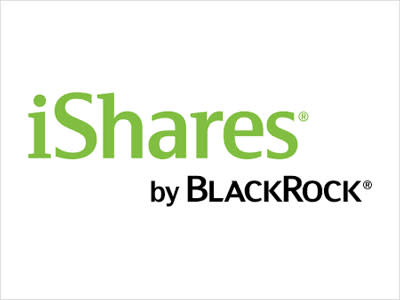- BlackRock, a pioneer in index investing, has lots of expertise of managing tracker funds
- We view this fund as a good option to get access to a broad spread of companies in emerging markets
- Its low charges should help the fund track the FTSE Emerging Index closely
- This fund is on our Wealth Shortlist of funds chosen by our analysts for their long-term performance potential
How it fits in a portfolio
The iShares Emerging Markets Equity Index fund aims to grow capital over the long term by tracking the performance of the FTSE Emerging Index. It provides diverse exposure to emerging countries, such as China, India, and Taiwan. Emerging markets are typically higher risk since they're at an earlier stage of development compared to their developed market peers.
An index tracker fund is one of the simplest ways to invest, and we think this fund could be a great, low-cost starting point as part of a portfolio aiming to deliver long-term growth. It could help diversify a more adventurous portfolio focused on global companies.
Manager
Mark Stephenson is a member of BlackRock's Index Equity team and co-leads the Emerging Market Pillar along with Manus Stapleton. Stephenson's service with the firm dates back to 1983, including his years with Barclays Global Investors (BGI), which merged with BlackRock in 2009. At BGI, he was a senior portfolio manager for Index Equity. Stapleton returned to Blackrock in 2021 having been a senior portfolio manager in indexed equity, index+ and commodities there for 11 years until 2012. Stapleton also worked at HSBC Halbis as co-lead of a long-short commodity strategy and as a senior indexed and ESG portfolio manager at Northern Trust Asset Management.
That said, Blackrock operate using a team-based approach which is well-resourced and experienced in index investing.
BlackRock’s global approach allows them to work closely with their teams across the world, helping drive more efficient management of their funds. We have positive conviction in the ability of BlackRock to provide simple and effective tracking options for investors.
Process
This fund aims to track the performance of the FTSE Emerging Index which covers most of the emerging stock market. It does this by investing in most, but not all of the index. This process is known as partial replication. This should help the fund track the index closely without the cost of holding every stock. A proportion of this fund is also invested into smaller companies which are higher risk than their larger counterparts.
The index provides a broad opportunity set including exposure to 24 countries. That said China, India, and Taiwan account for a significant amount of the index with over 65% of the fund invested here.
The fund invests in around 1850 companies versus 2023 for the index and is heavily focused on the technology, financials and consumer discretionary sectors which make up 22.73%, 22.31% and 13.62% of the fund respectively.
Companies that make up a very small part of the index are sometimes not held in the fund as they can be more difficult or expensive to buy and sell. For example, the fund doesn't currently invest in the two Pakistan-based companies in the index – they only make up around 0.01%, meaning they’re unlikely to have a significant impact on performance, and the team feels the cost of trading these stocks currently outweighs the potential benefits.
The makeup of the index has the potential to change over time, depending on which countries FTSE believes have reached, or lost, emerging markets status. For example, Iceland was reclassified as an emerging market from a frontier market in March this year.
The fund also has tracking error targets, which measure how closely it's tracking its benchmark. These are monitored by BlackRock on a daily and monthly basis to ensure the fund is being run efficiently. The fund can also lend some of its investments to others in exchange for a fee in a process known as stock lending. This adds risk but helps to keep costs lower.
Culture
BlackRock is currently the largest asset manager in the world, running around $9.5 trillion globally as of June 2023. The company was founded in 1988 by eight partners including current CEO Larry Fink and is known for both active and passive strategies across the world. Employees at BlackRock are encouraged to hold shares in the company so that they are engaged with helping the company perform well and grow. The iShares brand represents BlackRock's family of index tracking and exchange-traded funds.
As one of the world's largest asset managers, and with lots of resource and knowledge under its belt, BlackRock aims to continue to drive further development in this part of the investment market. Being such a large player in the index tracking arena gives BlackRock unique access to the marketplace, which can help reduce trading costs.
The team running this fund works closely with various equity and risk departments across the business. We believe this adds good support and challenge on how to run the fund effectively.
ESG Integration
BlackRock was an early signatory to UN supported network, the Principles for Responsible Investment, and has offered ESG-focused funds for several years, including through its iShares range of passive products. However, it only made a company-wide commitment to ESG in January 2020. Following that announcement, the company promised to expand its range of ESG-focused ETFs, screen some thermal coal companies from its actively managed funds and require all fund managers to consider ESG risks.
BlackRock’s Investment Stewardship Team aims to vote at 100% of shareholder meetings where it has the authority to do so. The Investment Stewardship team engages with companies, in conjunction with fund managers, and the results of proxy votes can be found on the BlackRock website’s ‘proxy voting search’ function. The firm also outlines its work on voting and engagement in annual and quarterly Stewardship reports.
Blackrock has courted controversy in recent years for failing to put its significant weight behind shareholder resolutions aimed at tackling climate change. It responded by committing to be more transparent on its voting activity and providing rationales for key votes.
Blackrock also raised concerns in 2022 when it suggested it will likely back fewer shareholder proposals based on environmental and social issues in the coming year, than it had in the previous. This was based on their view that shareholder resolutions are increasingly inconsistent with investors’ financial interests. We contacted Blackrock to understand their views at the time and will continue to monitor how their approach evolves.
As the iShares Emerging Markets Equity Index fund isn't an ESG-specific fund, there are no company exclusions applied like tobacco or weapons.
Cost
The fund has an ongoing annual fund charge of 0.19%. We think this is excellent value for an emerging markets tracker option run by a provider we rate highly. Our platform charge of up to 0.45% per annum also applies.
Performance
The iShares Emerging Markets Equity index fund has tracked the FTSE Emerging Index well since it launched in November 2009, and the fund’s returned 86.19% versus the benchmark’s 108.46%*. As expected from a tracker fund, it’s fallen behind the benchmark over the long term because of the costs involved. However, the tools used by the managers have helped to keep performance as close to the index as possible. Past performance is not a guide to the future.
The 10 biggest companies in the FTSE Emerging index currently make up 21.27% of the total index. How these companies perform will play a bigger part in the performance of the index and fund compared with some of the smaller holdings.
Over the last year, the FTSE Emerging index returned 2.56% to the end of July 2023. Retailers, travel, aerospace and defence companies were among the top performers over this period. Regionally, China was a headwind for performance with ongoing economic concerns, deflation and the real estate sector clouding sentiment towards the world’s second largest economy in recent times.
The five-year performance table below shows in some years the fund has tracked the index closer than others.
| Annual percentage growth | |||||
|---|---|---|---|---|---|
| July 18 -
July 19 |
July 19 -
July 20 |
July 20 -
July 21 |
July 21 -
July 22 |
July 22-
July 23 | |
| iShares Emerging Markets Equity Index | 8.00% | -2.08% | 11.47% | -4.82% | 2.03% |
| FTSE Emerging | 7.65% | -1.13% | 12.57% | -4.41% | 2.56% |
Past performance is not a guide to the future. Source: *Lipper IM to 31/07/2023.
Find out more about iShares Emerging Markets Equity Index, including charges
View iShares Emerging Markets Equity Index Key Investor Information


